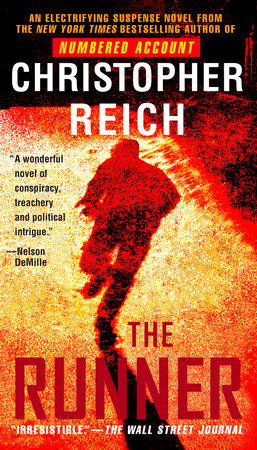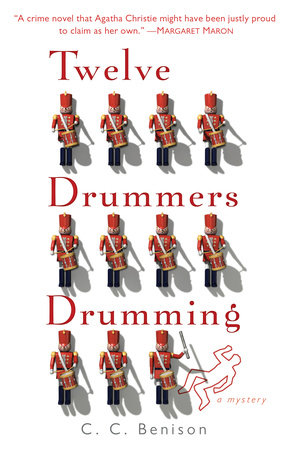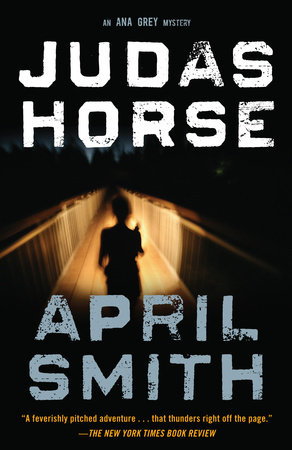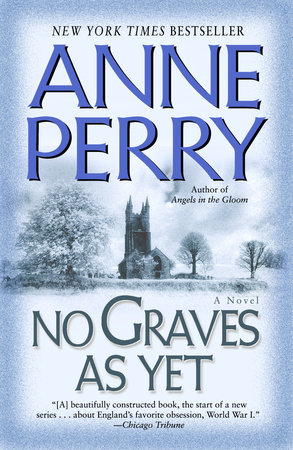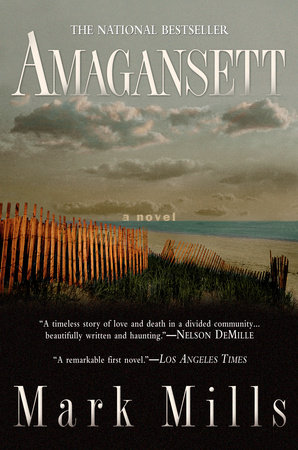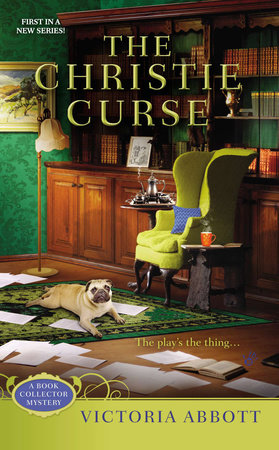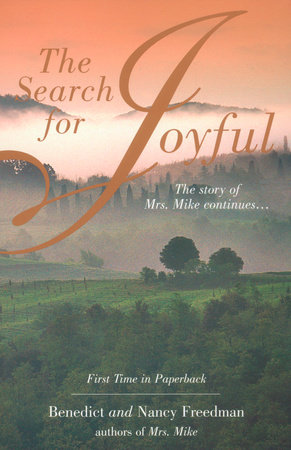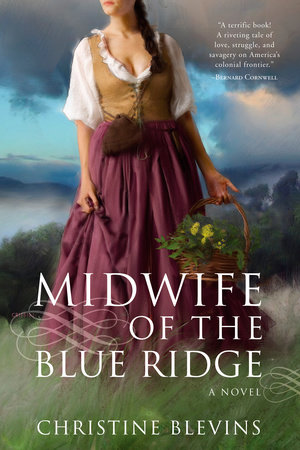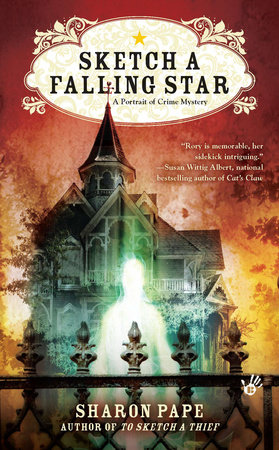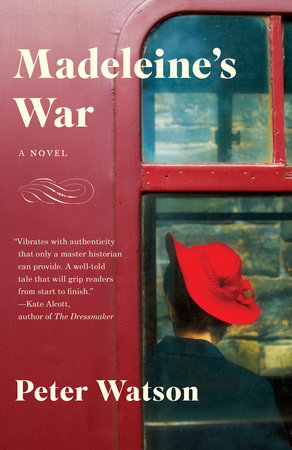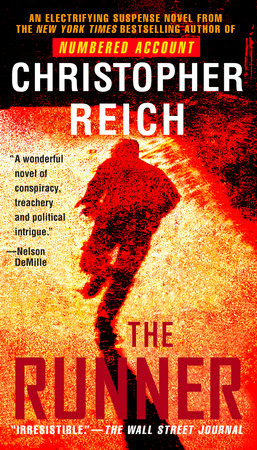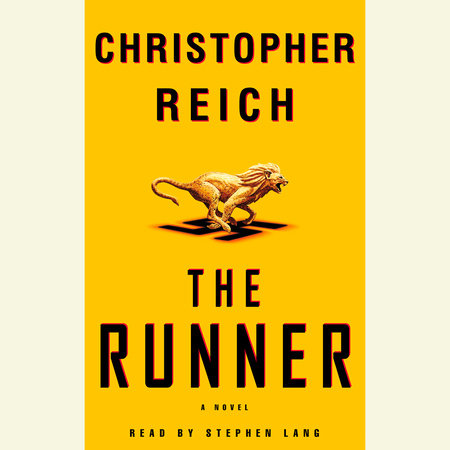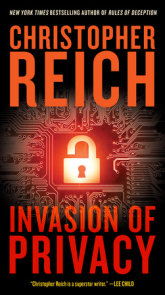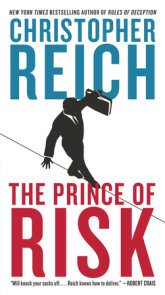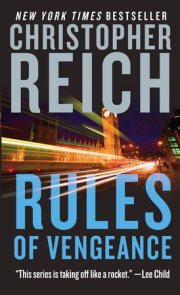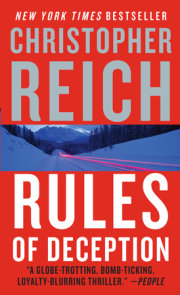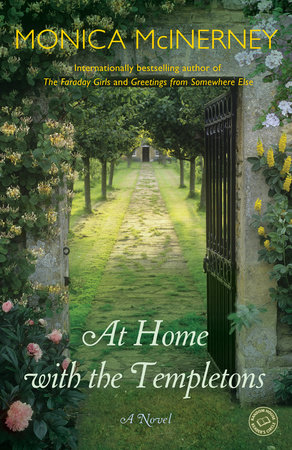Author Q&A
Q: You’ve spoken about the moment in history that inspired The Runner. Can you describe it for readers, and explain why it sparked this thriller from you?
A: I’ve been a World War II buff as long as I can remember. Growing up, the Second War was always lurking in my imagination. I read Cornelius Ryan, saw "The Battle of Britain" about ten times, "The Guns of Navarone," too. But I’d never really heard or read too much about what happened right after the war ended. What happened to all the soldiers who surrendered? Where did they go? What did they go? Doing some preliminary reading, I came across a mention of some fanatical German soldiers who called themselves ‘Werewolves’ who’d sworn never to give up. Just the name ‘werewolf’ sent a chill through my blood. I was hooked! I began to imagine what one of these soldiers might be like, what he’d do for his country, a man for whom losing the war was worse than death, itself. What came from those thoughts is The Runner.
Q: Numbered Account took readers behind-the-scenes in international finance. THE RUNNER takes readers behind-the-scenes of the post-W.W.II war crimes justice system, as well as back in time. How is writing about the past different from writing about the "now?" How do you thread such fact through the fiction and keep the narrative moving?
A: The greatest difficulty about writing about past events– certainly events that took place before you were born–is being faithful not only to the facts of the era but to its spirit. The world has certainly changed a lot since 1945. We, as Americans, live by far more relaxed morals and conventions than our parents and grandparents. Just look at how we dress for work, how we address our superiors on the job, or better yet, look at our sex lives. So you can’t just bury yourself in a pile of books, you have to listen to the people who were alive then. When I started The Runner, I knew what I wanted to happen ‹ that is, how the plot needed to unfold ‹ but I didn’t know how. I let my research write the story for me. Scenes of the German black market and in Jake’s Joint, the American Roadhouse outside of Munich, were drawn directly from interview with an American pilot and a former German soldier who after the war became the ‘self proclaimed’ king of the Heidelberg black market. The key was to select only the stories – the facts, the details – that propel the story forward. Keep those pages turning!
Q: Are your novels a reflection of the kind of fiction you enjoy reading? Who are your author heroes?
A: Without question, I try and write the kind of stories I enjoy reading. I’ve always been a voracious reader. To crib from Jay McInerney, I grew up with the classics: Ludlum, Forsyth, Deighton and of course, Franklin W. Dixon. (Ten points to all you former Hardy Boys fans). Another favorite was James Clavell. I can remember getting lost for days on end in King Rat, Taipan, Shogun and Noble House. My current all-star list includes Nelson DeMille, Tom Wolfe, and Peter Blauner. Still, the one writer whose work I most admire is John Le Carre. Though he’s been labeled a writer of spy fiction, he’s much, much more. No writer plumbs the hearts of his character like Le Carre, or provides greater insight into their actions. He is nothing short of brilliant. His books taught me everything I know today about writing. I recently had the chance to meet him in Zurich and can say that his talent is exceeded only by his kindness.
Q: Tell us more about how you write. Do you follow a routine? What most surprises you about the process? Do you begin with a character, an idea, or a title? Reviewers all call your fiction fast-paced or page-turning. How do you describe your fiction, and how to you craft the pages to draw readers through the narrative?
A: Writing is a job, a vocation, not an avocation. To those who wait for the muse to dance upon their shoulder, good luck. Writing is hard work and success depends just as much on one’s ability to keep his or her butt in a chair and get the job done as it does on talent. I try and put in eight hours a day, beginning by 8:30 and finishing up by 5 or 5:30 with an hour and a half for lunch. I like to tell people to do as much outlining of the story as possible before you start. Have your plot pretty much figured out. Know the main events that have to take place in the book and how it’s going to end. Your characters are paramount. The more you can suss out about them beforehand the better. I like to write long biographies about the principal players, so I really know who they are ‹ where they grew up, pivotal childhood events, favorite books, parental memories and lots, lots, more. So much of a story comes out of character. I always keep in mind that I am trying to write top notch commercial fiction. A fast paced story that teaches the reader something about an interesting subject and maybe something about themselves. In doing so, I like to end each chapter on a mysterious note ‹ either something has gone wrong or something big is about to happen. Mostly, though, I want the reader to feel that he or she absolutely has to know what’s coming next. The title is the last thing that comes to mind.
Q: What was the most surprising thing about the success of Numbered Account? What was different or surprising about preparing for The Runner?
A: Learning that Numbered Account, my first novel had hit the New York Times Bestseller list ranks among the greatest rushes in my life. You can hope, you can pray, but when it actually happens, it’s simply marvelous. I think the biggest surprise about Numbered Account was that the book found such a large audience. Readers didn’t shy away because of subject matter ‹ I mean how many people think that they’re going to find a rip-roaring yarn about intrigue in a Swiss bank. Word of mouth spread that most of all it was a really exciting story. A young guy gets caught way over his head with some of the savviest, most sophisticated criminals in the world and has to fight his way out. When I set out to write The Runner, I wanted to explore another area that fascinated me – the Second World War and what happened in its aftermath.
Q: Care to share what’s coming next?
A: The next book is just getting off the ground. Set in contemporary times, it’s the story of a young CIA spy, fresh out of training, who is sent into Russia to bring down the head of a Moscow Crime Syndicate, a smooth type who has plans to harm certain interests of the United States. It’s appalling how much of Russia today is controlled by organized crime. Some say up to 75% of all business and industry is mob run. That means the government is involved as well. And that makes good grist for a thriller writer’s mill. Anyway, I’ll be spending most of the summer in Moscow researching the book. Look for it in the Spring of 2002.
Q: If you could be asked one question by the readers of your books, what would you hope the question to be?
A: The question I like to hear the most is "When is the next book coming out?"
Q: What advice would you give aspiring authors?
A: My advice to aspiring authors is simple: Take a look into the mirror and make sure you have the talent to get the job done. Don’t fool yourselves. If you do, sit down and start writing and don’t quit until your done. Once their finished, I’d advise them to be humble and be ready to edit, edit, edit!
